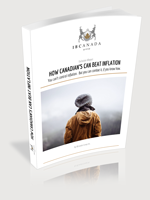The answer is it depends.
Let’s start with a simple explanation of each type.
Term (T) life insurance is like renting a house. Whole Life (WL) is like owning a house.
The initial premium for T is small compared to WL. How much smaller depends on how long you want to be covered. T is generally available for terms of 5 years up to age 85, sometimes age 100. The most common terms are 10 and 20 years.
WL premiums are based on providing coverage for as long as you live which may be to age 100 or longer.
So, you don’t need to be a rocket scientist to see that a T10 (10-year term) or T20 (20-year term) premium is going to significantly lower initially than WL.
Most T is guaranteed renewable at the end of term to a T1 (1-year term) or the same term as the initial coverage without medical info until usually age 70. Most T is also convertible without medical evidence to WL.
If you want coverage for as long as you live, WL will require lower cumulative premiums over your lifetime than will T.
Now let’s turn to the concept of buy term and invest the difference.
In my 38+ years experience it is rare for anyone to invest the difference. Many may start out doing so but life happens, and the difference is absorbed elsewhere.
Then there are the non-financial considerations like tax, access and control.
In order to make investing the difference optimal, you will want to invest it tax effectively. Most will turn to a RRSP (registered retirement savings plan) inside a mutual fund that provides a tax deduction and tax deferred growth.
The problems with a RRSP is if you need access to the money.
Most will allow you the ability to redeem but subject to income tax. Investing in a RRSP also means you forfeit control which means volatility and possible losses. It also means you must start to redeem your RRSP currently at age 71. Redemptions mean you lose compound interest and are unable to recontribute unless you have contribution room remaining. Current contribution room is 20% of your annual earned income less any pension adjustment (PA).
Another investment option is a TFSA (tax free savings account). It is available for individuals age 18 and over. Carry forward of unused contributions are available. Past annual contributions have varied with current annual contributions being $6,000 subject to change. There are no current rules requiring you to redeem at an age. All growth is tax-free. When and if you redeem, all earnings are tax free. But as with the RRSP redemptions mean you lost the compound interest. While you can recontribute what you withdraw the following taxation year, the compound interest you missed out on is lost. Again, commonly, life happens and most never stick with investing the difference.
Many miss that WL provides lifetime compound interest, control (no redemption rules), access to your money via guaranteed loans to deploy for other opportunities with no credit checks. Many well-known wealthy individuals and businesses acquire WL and use effectively in something called the Infinite Banking Concept, also known as Becoming Your Own Banker.
WL can be viewed as buying term and investing the difference in a tax-exempt growth mutual fund that always receives an annual dividend. This means your investment is guaranteed to increase every year. A look at mutual fund performance will show that is not the case.
Good life insurance agents will recommend if cash flow is limited that you obtain enough T insurance to provide security for your loved ones if not adequate to obtain WL.
If cash flow is available, WL is one of the most unique, versatile, under-discussed, products in the financial marketplace you will find.
One of our clients after 20-years has accumulated $1.7M in cash value in his WL policies and was very pleased to learn it performed as well as his mutual funds.




